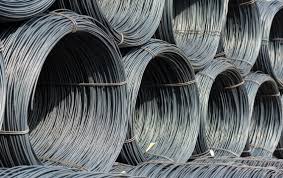Stainless wire, a versatile and essential material in numerous industries, offers a unique combination of strength, flexibility, and corrosion resistance. This article explores the composition, applications, and benefits of stainless wire rope, shedding light on why it is a preferred choice in various fields.
Composition of Stainless Wire
Stainless wire is primarily made from stainless steel, an alloy composed of iron, carbon, and chromium, with the chromium content being at least 10.5%. This chromium presence is crucial as it forms a thin layer of oxide on the surface of the steel, known as the passive layer, which prevents further surface corrosion and blocks corrosion from spreading into the metal’s internal structure. Other elements such as nickel, molybdenum, and nitrogen can also be added to enhance specific properties like ductility, corrosion resistance, and strength.
There are several types of stainless steel used to manufacture stainless wire, including:
- Austenitic Stainless Steel: Known for its excellent corrosion resistance and high tensile strength. Grades such as 304 and 316 are common in this category.
- Ferritic Stainless Steel: Magnetic and provides good corrosion resistance with lower ductility. Grades like 430 are typically used.
- Martensitic Stainless Steel: Known for high strength and moderate corrosion resistance, often used in applications requiring hardness and strength, such as cutlery and surgical instruments.
- Duplex Stainless Steel: Combines the characteristics of austenitic and ferritic stainless steels, offering higher strength and excellent resistance to stress corrosion cracking.
Applications of Stainless Wire
Stainless wire finds applications across a wide range of industries due to its adaptability and robust properties:
- Medical Field: Used in the production of surgical instruments, orthodontic appliances, and catheters due to its biocompatibility and corrosion resistance.
- Construction: Employed in the creation of safety railings, architectural accents, and reinforcement for structures because of its strength and aesthetic appeal.
- Automotive Industry: Utilized in the manufacturing of exhaust systems, airbags, and various engine components due to its durability and resistance to heat and corrosion.
- Aerospace: Essential in the production of aircraft components, fasteners, and springs because of its high strength-to-weight ratio and resistance to extreme temperatures.
- Marine Industry: Used in rigging, anchors, and propellers for boats and ships, given its excellent resistance to seawater and harsh marine environments.
- Electronics: Employed in the production of various electronic components such as connectors, leads, and screens because of its conductivity and resistance to oxidation.
- Food and Beverage: Utilized in the manufacture of food processing equipment, conveyor belts, and storage tanks due to its sanitary properties and ease of cleaning.
Benefits of Stainless Wire
The unique properties of stainless wire provide several benefits that make it a preferred material in various applications:
- Corrosion Resistance: The chromium oxide layer offers superior protection against rust and corrosion, making stainless wire ideal for use in harsh environments.
- Strength and Durability: Stainless wire is known for its high tensile strength and durability, ensuring longevity and reliability in demanding applications.
- Flexibility: It can be easily formed and manipulated into various shapes and sizes, making it versatile for different uses.
- Temperature Resistance: Capable of withstanding extreme temperatures, both high and low, without losing its properties.
- Aesthetic Appeal: Its shiny and polished appearance adds to the aesthetic value of structures and products, making it a popular choice in design and architecture.
- Low Maintenance: Stainless wire requires minimal maintenance due to its resistance to corrosion and staining, reducing long-term costs.
- Recyclability: Stainless steel is 100% recyclable, making it an environmentally friendly option.
Conclusion
Stainless wire, with its impressive blend of corrosion resistance, strength, and versatility, plays a crucial role in various industries. Its unique properties and benefits make it an indispensable material for applications ranging from medical devices to construction and aerospace components. As technology and industry demands evolve, the role of stainless wire is likely to expand further, continuing to drive innovation and efficiency in numerous fields.


